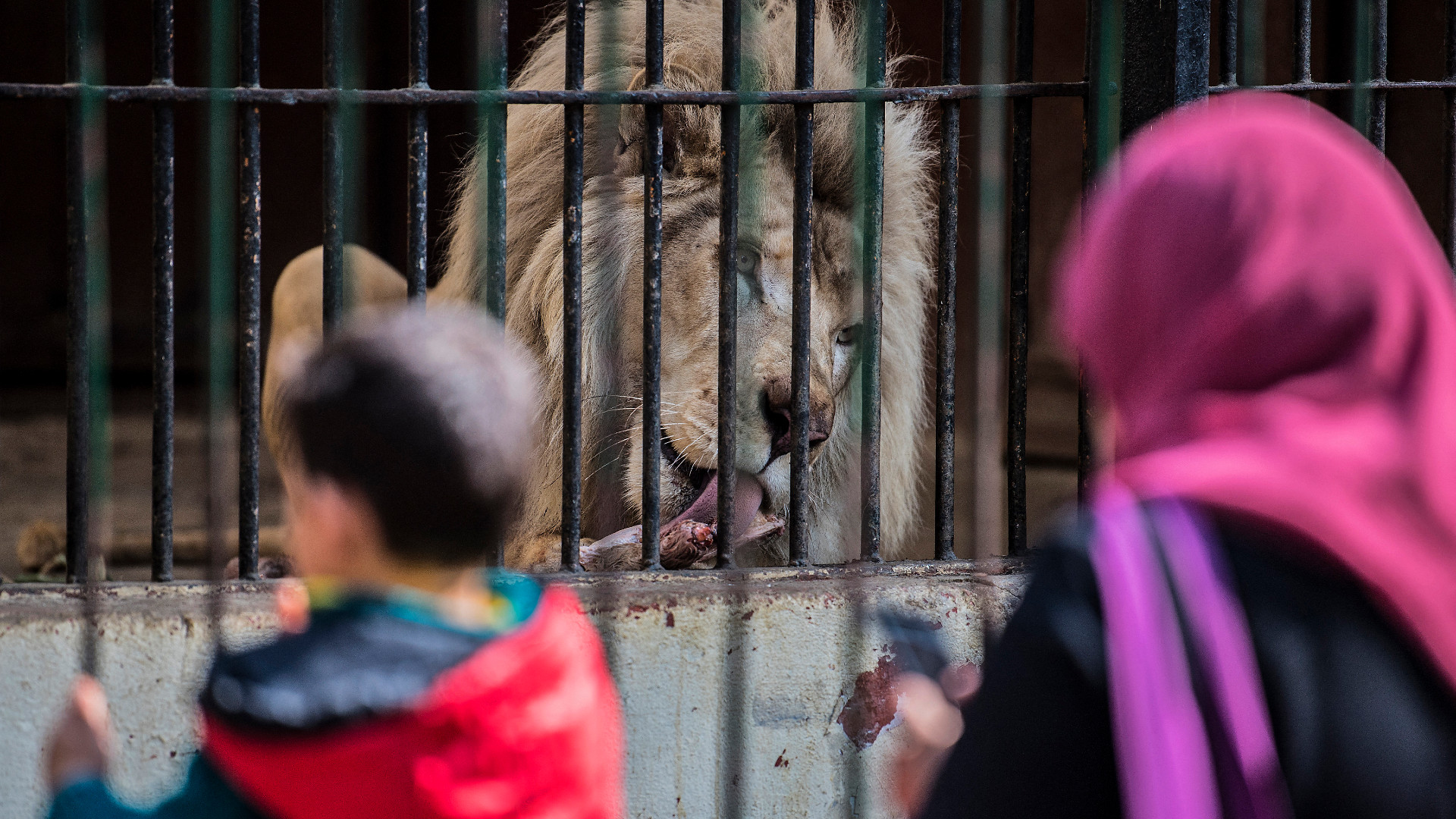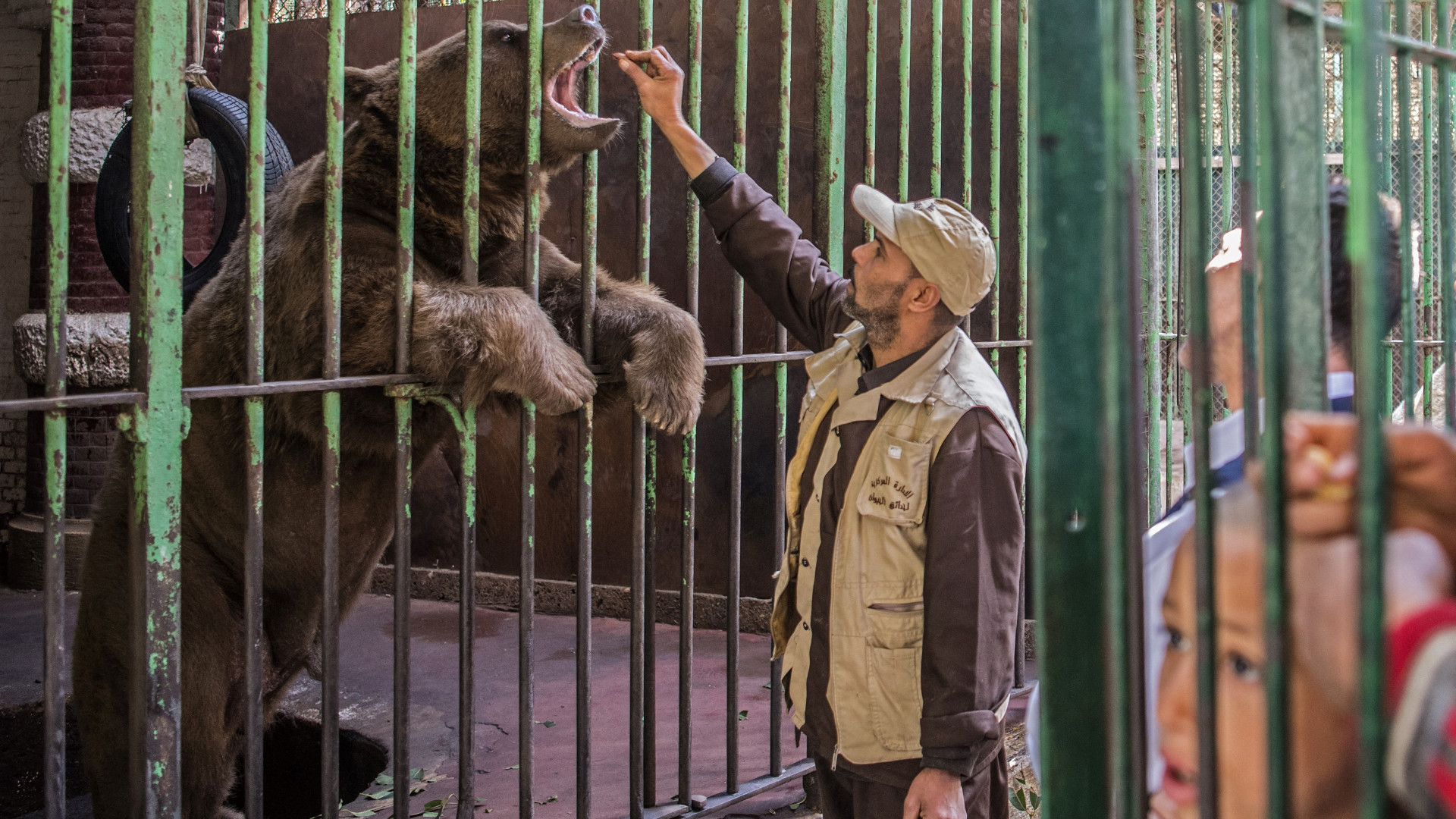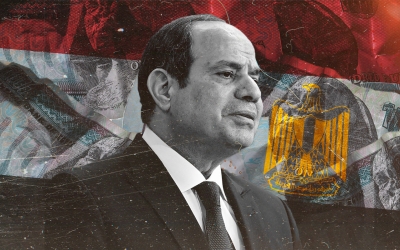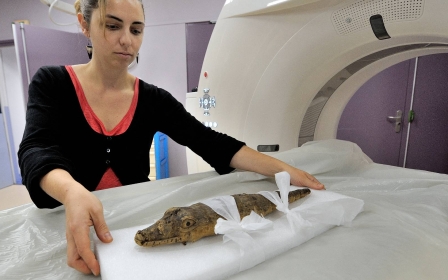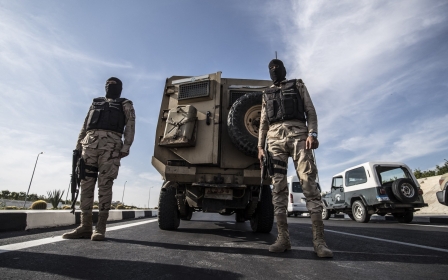Egyptians fear for historic Giza Zoo as UAE investor steps in
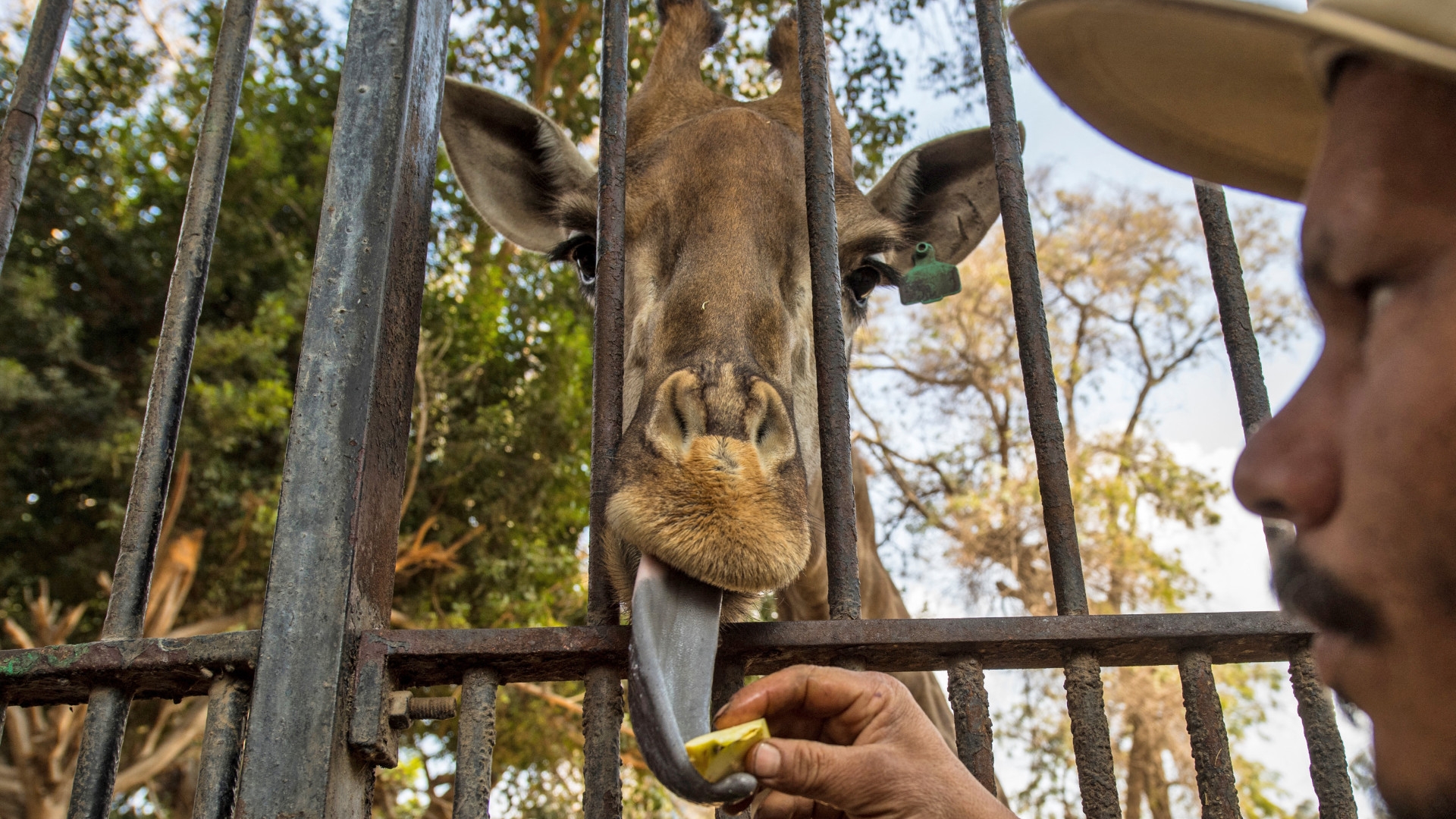
Cairo’s Giza Zoo, the oldest in Africa and the Middle East, will close its doors in January for the first time since it opened in 1891.
In a project that could take up to 18 months, an Egyptian-Emirati consortium will spend one billion Egyptian pounds (roughly $37m) renovating the zoo, and a nearby botanical garden, to make it “cage-free”. Once the work is done, animals will live in open spaces and visitors will follow set routes. The two sites will be connected with a gondola, the group has pledged, adding that the site’s historical attractions won’t be touched.
In return, for the next 25 years, the consortium will get "usufruct rights" - whereby a party generates income from another party’s property - over the zoo and the neighbouring Orman Botanical Garden.
The Ministry of Agriculture has said it will retain ownership of Giza Zoo and that the consortium - the Abu Dhabi-based Worldwide Zoo Consultants, an undisclosed Egyptian agency and an affiliate of the Egyptian Ministry of Military Production - will each year pay a sum higher than the total current annual revenues from both sites.
New MEE newsletter: Jerusalem Dispatch
Sign up to get the latest insights and analysis on Israel-Palestine, alongside Turkey Unpacked and other MEE newsletters
But news of the overhaul has been greeted with consternation. Fears are growing that the zoo, which has traditionally been a hugely popular spot for low-income Egyptians, will become yet another national asset sold to foreign bidders, as Egypt strives to fill its empty coffers.
Locals believe that Giza Zoo will at best become inaccessible to the poor, and at worst end up squarely in Emirati hands, following the same trajectory as many other Egyptian institutions over the past few months.
Entrance fees to the Citadel of Saladin, for example, a historic fortress in southern Cairo, were increased fivefold in 2020 after management was transferred to an Emirati-Egyptian investor.
"Overhaul is acquiring a bad reputation as a word, provoking everybody's fears," Galal Shalabi, a staff member at Giza Zoo using a pseudonym for fear of repercussions told Middle East Eye. "The general impression is that this overhaul will make things worse."
‘An entertainment sanctuary for the poor’
With dozens of animal and bird species, and thousands of rare trees, the Giza Zoo, which covers around 80 acres, has been visited by tens of millions of Egyptians since it opened at the end of the 19th century.
The facility, which is located close to the centre of the Egyptian capital, just a few metres away from Cairo University, also houses several museums and a steel bridge constructed by Alexandre Gustave Eiffel, the French civil engineer who built the Eiffel Tower in Paris.
'This zoo needs better management, not an upgrade'
- Giza Zoo staff member
The zoo also used to house a bedroom belonging to Farouk, Egypt's last monarch and a member of the Mohamed Ali dynasty that ruled Egypt from 1805 to 1952.
Many Egyptians, regardless of their class, have childhood memories of the zoo.
Egyptians of all ages come to the attraction, often entering for a few Egyptian pounds at the end of the work day. Schools nationwide organise tours of the facility, with thousands of pupils visiting every day.
"The fear is that the planned upgrade will end up destroying the place," Maged al-Rahib, head of the local heritage advocacy group, the Society for the Preservation of Egyptian Heritage, told MEE.
"Giza Zoo used to be an entertainment sanctuary for the poor."
Old cages and stolen bedrooms
Even so, the zoo has been falling apart for years.
Successive Egyptian governments have failed to invest in the site, whose steel boundary fence has stood since its opening in 1891, along with some of the animal, reptile and bird cages.
The administration of the facility has also not been able to replace many of the animals, birds and reptiles that have died in recent years from either neglect or malnutrition.
Others have gone missing or been stolen by zoo staff. (Even King Farouk's bedroom was mysteriously stolen, somehow, in 2013, only to appear several years later in the US - on sale for $1m.)
Earlier this month, Egyptian President Abdel Fattah el-Sisi called for the zoo to be upgraded to international standards.
"Egypt deserves to have a zoological garden as good as ones in advanced states," Saqr Abdel Fattah, a member of the Committee on Agriculture in the Egyptian parliament, told MEE.
'The closure of this facility will be catastrophic for workers like me, who will most likely stop receiving their salaries'
- Zoo worker
But specialists closely following the deal say the Egyptian-Emirati consortium only cares about making money back on its investments.
"The upgrade may entail radical changes to the zoo, as opposed to the conservation that should be done in it," urban planning specialist Suhair Hawass told MEE. "Investors will upgrade the facility to make money from it, which means that they will do everything to get their money, regardless of how the garden will look like in the future.
Zoo staff have been left fearing for their short-term livelihoods.
"The closure of this facility will be catastrophic for workers like me, who will most likely stop receiving their salaries," Mustafa Abdurrahman, who asked to use a pseudonym due to fear for his safety, told MEE. "This zoo needs better management, not an upgrade."
Animal rights
Another criticism that has been levelled at the project is the fact it prioritises entertainment over animal welfare.
Dina Zulfiqar, an animal's rights advocate, said government officials who talk about the deal overlook the modern functions of zoological parks, namely spreading awareness among the general public about wildlife and protecting species facing extinction.
"They do this on purpose," said Zulfiqar, who is also a member of a cabinet committee to supervise zoological parks in Egypt. "They focus instead on the entertainment aspects of the planned overhaul of the zoo, which is a sorrowful thing."
Efforts by Zulfiqar and other specialists to improve conditions for the zoo's animals in the past have faced many challenges.
Some state bodies, including the Ministry of Tourism and Antiquities, had put restrictions on their work, she said, especially when it came to working in or close to parts in the zoo registered as antiquities.
Zulfiqar also calls for the relocation of the zoo from the busy area it is in now, where pollution and noise make it unfit to house animals.
The usufruct deal for the zoo comes as authorities are selling off vast amounts of state-owned assets to foreign bodies, including sovereign wealth funds owned by Gulf countries.
The United Arab Emirates, Saudi Arabia and Qatar have acquired a large number of Egyptian assets, including banks, companies and factories, for billions of dollars.
Egypt, which is heavily dependent on food imports from the international market, now has to pay more for imports because of the war in Ukraine, and is in desperate need of money to make up for the losses incurred.
The loss of tourists from Russia and Ukraine, who before the invasion flocked to Egypt in their millions, has been a brutal blow for the country’s economy. The national tourism sector accounts for 20 percent of Egypt's GDP and employs 10 percent of its 27 million-strong workforce.
This article is available in French on Middle East Eye French edition.
Middle East Eye delivers independent and unrivalled coverage and analysis of the Middle East, North Africa and beyond. To learn more about republishing this content and the associated fees, please fill out this form. More about MEE can be found here.


